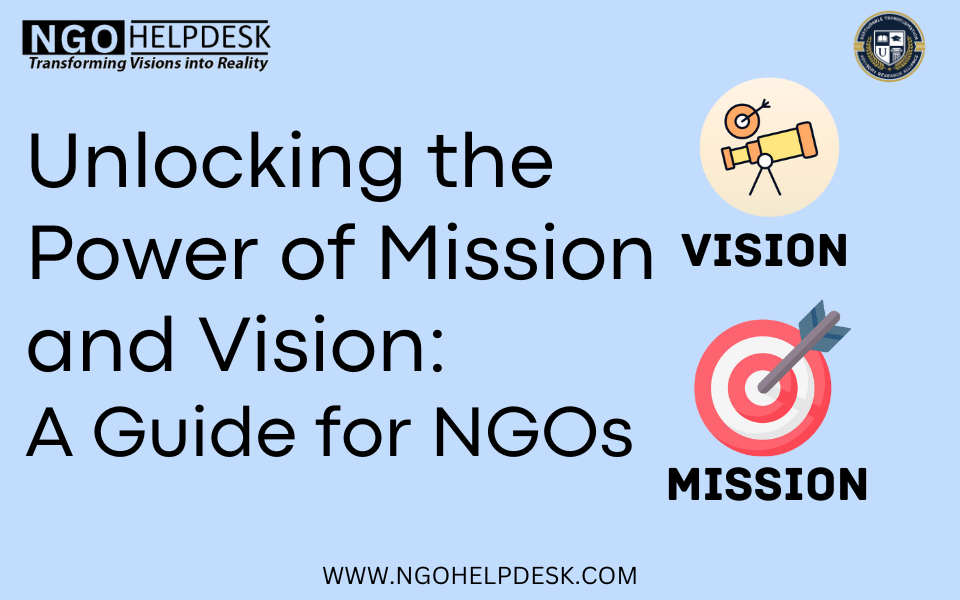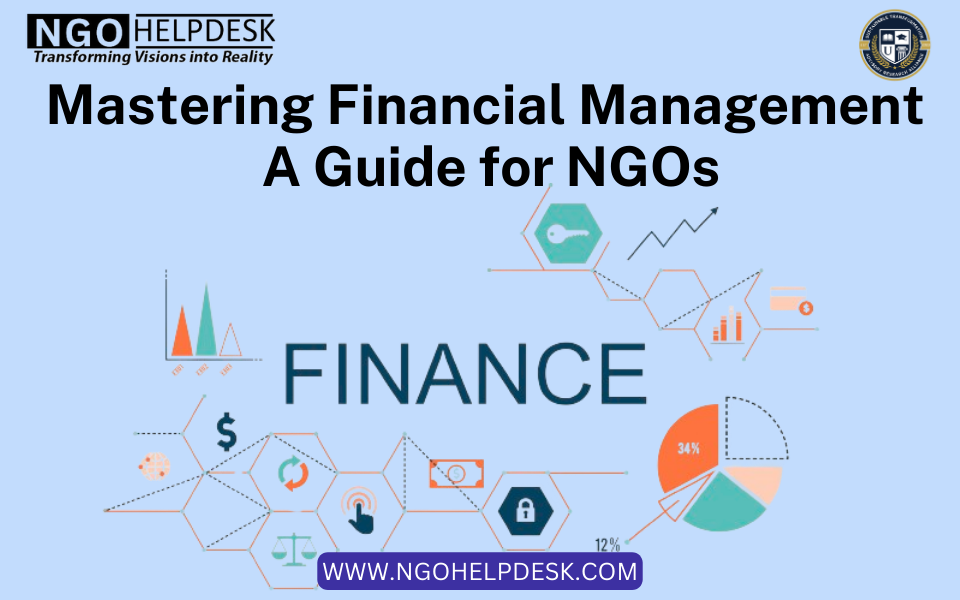
Introduction:
In the realm of Non-Governmental Organizations (NGOs), clarity of purpose is paramount. At the heart of every successful NGO lies a clear and compelling mission and vision statement, serving as guiding beacons illuminating the path towards meaningful impact. Join us as we delve into the significance of understanding the mission and vision, and how these foundational statements shape the trajectory of NGOs worldwide.
The Significance of Mission and Vision:
In the bustling landscape of social impact initiatives, having a well-defined mission and vision is akin to having a North Star to navigate by. Your mission encapsulates the core purpose of your NGO, articulating why it exists and the change it seeks to bring about. Meanwhile, your vision paints a vivid picture of the future you aspire to create, inspiring stakeholders and rallying them around a common cause.
Guiding Organizational Activities:
A clear mission and vision serve as guiding lights, illuminating the path forward and informing every facet of an NGO’s activities. From strategic planning to day-to-day operations, these statements act as touchstones, ensuring alignment and coherence in pursuit of organizational goals. Whether mobilizing resources, designing programs, or forging partnerships, every decision and action is anchored in the overarching mission and vision.
Inspiring Stakeholder Engagement:
The resonance of a compelling mission and vision extends far beyond the confines of the organization. It captivates stakeholders, from donors and volunteers to beneficiaries and communities, forging connections based on shared values and aspirations. By articulating a compelling narrative of change, NGOs can galvanize support, mobilize resources, and foster meaningful engagement with stakeholders.
Driving Impactful Decision-Making:
In the complex landscape of social change, clarity is a precious commodity. A well-crafted mission and vision provide clarity of purpose, empowering NGOs to make informed and impactful decisions. When faced with strategic dilemmas or operational challenges, these statements serve as guiding principles, enabling organizations to stay true to their overarching goals and values.
Conclusion:
In the tapestry of NGO management, the threads of mission and vision are woven with intention and purpose. By understanding the significance of these foundational statements, NGOs can unlock the full potential of their impact. Let your mission and vision be more than mere words on paper—let them be catalysts for transformative change, guiding your organization towards a brighter, more equitable future.









